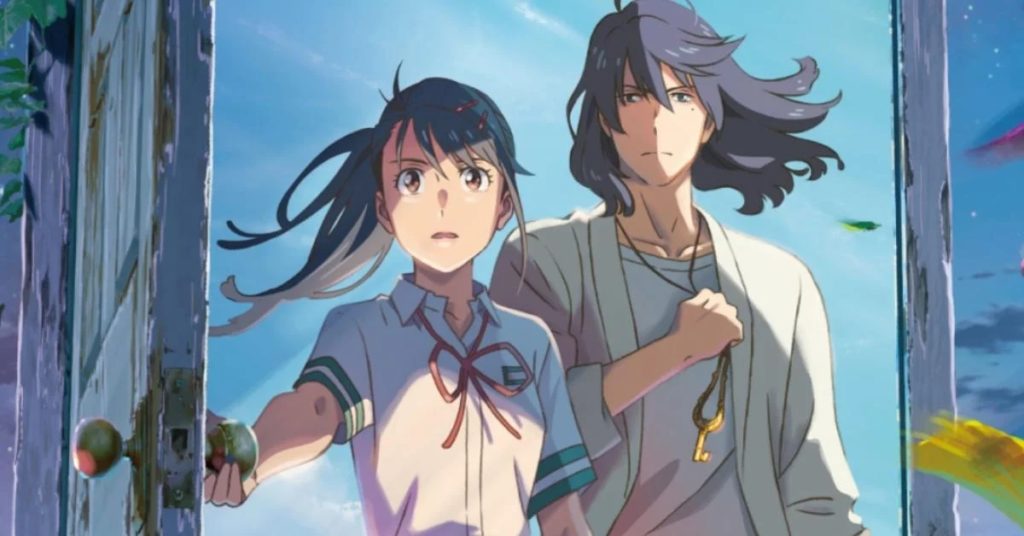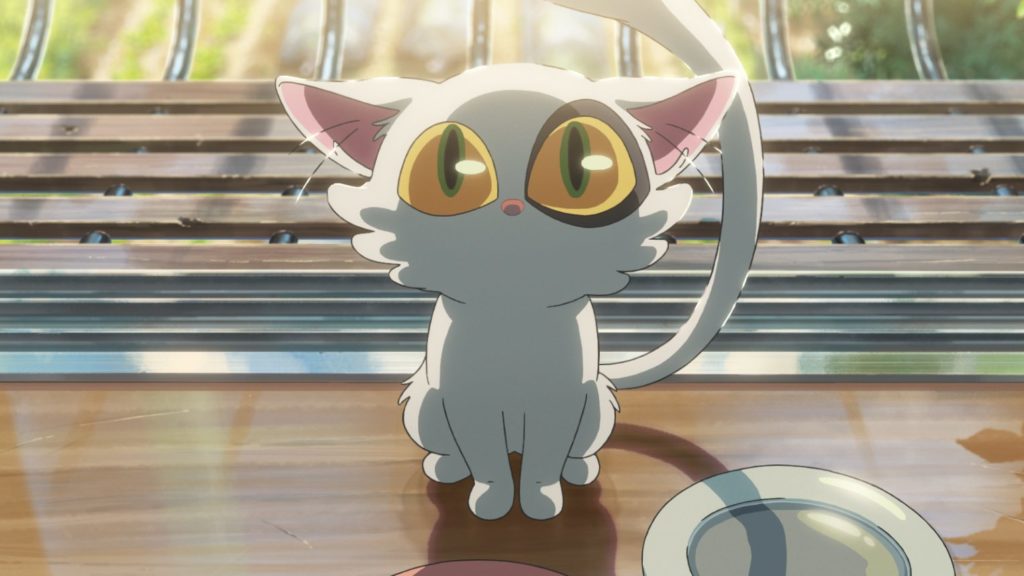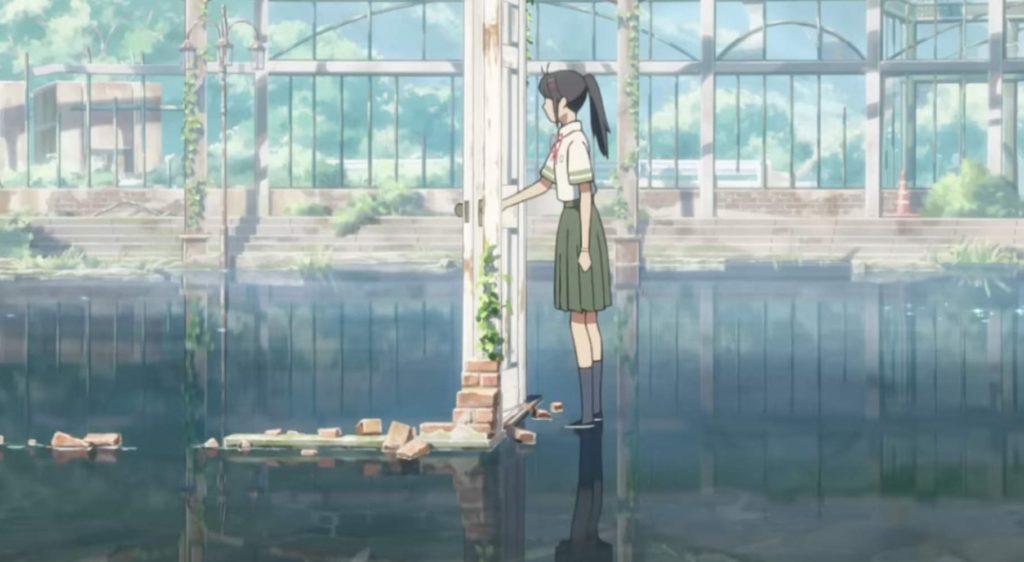
[ad_1]
February 3, 2023
·
0 comments
By Andrew Osmond.

Makoto Shinkai’s new film Suzume isn’t in British cinemas yet – as of writing, it’s scheduled for release on 14th April. However, Anime Limited is distributing the Japanese import version of the film’s vinyl soundtrack, which will be followed by the company’s own CD and vinyl editions later this year.
The least surprising thing to say about the 82-minute soundtrack, consisting of 29 tracks, is that it involves Radwimps, the rock band that’s become Shinkai’s go-to collaborator since Your Name. However, there’s a substantial difference between Suzume and both Your Name and Weathering with You. The earlier films, especially Weathering, were peppered with Radwimps’ song numbers, which defined big sequences. An obvious case is the “Zen Zen Zense” montage in Your Name, showing the characters coping with their swapped bodies. But Suzume doesn’t work like that.
This time, there are no Radwimps songs in the background during the story. The vinyl soundtrack does have four Radwimps songs, but you’ll notice they’re at the end of the CD. The first two are “Kanata Haluka” and “Tamaki,” which both play under the film’s end credits. A soft ballad, “Kanata Haluka” is performed by Radwimps’ regular vocalist, Yojiro Noda. However, the more distinctive “Tamaki,” which is prominent in the trailers, was performed by a guest singer, Toaka.

According to a press release, Radwimps explored various social media platforms, checking out the current talent and auditioning several singers in search of a “mysterious” voice. Toaka was a rising talent on Tiktok, a platform that was reportedly used by more than half of Japanese teens in 2022. Toaka’s Tiktok channel is here, including her English-language cover of a Billie Eilish song, “Halley’s Comet.” She’s hardly the only internet singer to make the Japanese mainstream. Another is Ado, whose voice ownedlast year’s megahit, One Piece Film: Red.
The other two Radwimps songs, “Tamaki” and “Tears of Suzume,” are both performed by Noda, but they’re not in the film itself. It highlights how Suzume as a film moves away from the “music video” approach of its predecessors, even as Radwimps’ music remains vital to the multimedia package.
As mentioned, you’ll find the four songs at the end of the soundtrack, amounting to just under twenty minutes in all. The rest of the soundtrack is the background to the eventful story. It alternates between light, quiet pieces and heavier tracks; the heavy ones build on a theme, as they’re tied to a supernatural phenomenon that recurs through the film. This phenomenon rises upwards into the sky, as reflected in the spiralling, ascending music. You can hear it from the second track, “Abandoned Resort,” which layers in some lovely choral singing without turning into a song track.

“Abandoned Resort” is another collaboration, credited to both Radwimps and a Seattle-based musician called Kazuma Jinnouchi, who has other anime credits of his own. He scored the CG anime version of Ultraman released by Netflix, as well as another CG anime, Ghost in the Shell: SAC_2045. Jinnouchi and Radwimps also work together on other tentpole tracks in Suzume, including “Dreaming on Ferris Wheel,” a dynamic piece that could be from a Spielberg-Zemeckis film, before it leans into the ‘80s retro-synth of Stranger Things. The musicians also collaborate on mellower tracks as the film nears its resolution: “To be with Sota” and “Closing the Door.”
Of Jinnouchi’s tracks without Radwimps, I especially like the elegantly humorous “Hitchhike” and “Shinkansen Super Express,” which are close to what you might find in a Miyazaki score by Joe Hisaishi. On the Radwimps side, a standout is the jazzy “Cat Chase,” which evokes Yuji Ohno’s iconic music for Lupin the Third. We always knew cats were super-criminals.
So that’s a heap of listening, but the soundtrack is not a full representation of how Suzume handles music. Shinkai fans know the director is prone to putting his favourite non-anime tracks into his films. 5 Centimeters per Second had “One More Time, One More Chance,” a 1997 single by Masayoshi Yamazaki. The Garden of Words did something similar for “Rain,” sung by Senri Oe in 1988 (though a different version was made for the film, sung by Motohiro Hata).
Without giving too much away, there’s a sequence in the Suzume film where we’re given a whole medley of famous Japanese songs. I saw the film in Tokyo, and my Japanese friend was chuckling appreciatively through the scene. The medley feels mostly aimed at Japanese viewers, but there’s at least one song that anime fans will recognise. It’s linked with another famous anime film, and you might see it as a fond homage or a cheeky challenge on Shinkai’s part.
However, none of these songs are on the vinyl soundtrack, plainly for rights reasons. The good news is they’re an extra you can look forward to when you see the film.
The Suzume soundtrack is relesed in the UK by Anime Limited.
[ad_2]





